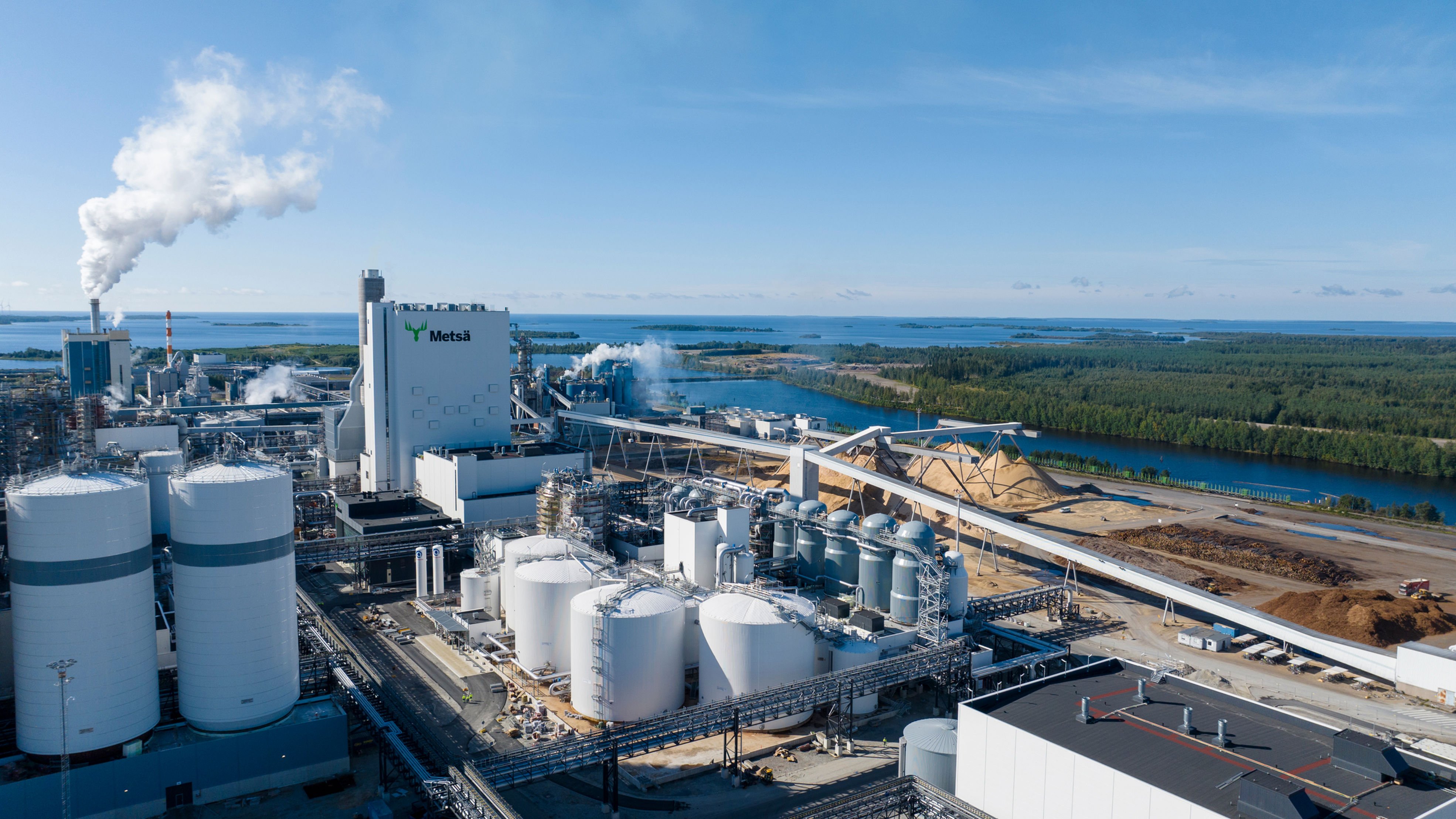Even now, renewable energy plays a key role in Metsä Group’s operations. In 2023, 97 per cent of the fuel used in Metsä Fibre’s production was fossil free, consisting mainly of wood-based production side streams.
Metsä Fibre’s recent investments have been a major step towards fossil-free production. The Äänekoski bioproduct mill completed in 2017, the new pine sawmill in Rauma completed in 2022, and the new bioproduct mill in Kemi completed in 2023 all operate completely without fossil fuels. At the Joutseno mill, the energy source for the lime kiln is product gas made from bark.
A significant share of all renewable energy produced in Finland is generated in connection with pulp production when the black liquor formed from wood material and cooking chemicals is combusted in the recovery boiler. The energy self-sufficiency rate of Metsä Fibre’s pulp mills was 159 per cent in 2023, and they are among the largest producers of renewable energy in Finland. In addition to our own production, we supply renewable energy in the form of district heat to local communities and as electricity to the grid. Most of the energy used at our sawmills is already wood-based bioenergy. In addition, the sawmills use small amounts (2 per cent of the energy required by the sawmills) of fossil energy sources for heat production at their power plants. We will also switch to renewable or fossil free alternatives at out sawmills by 2030. All the purchased electricity required by the sawmills is already renewable.
The emissions from our value chain (Scope 3) constitute the largest part of all our fossil greenhouse gas emissions. In our value chain, a significant part of the emissions is caused by the procurement of raw materials, the manufacture of process chemicals, and the upgrading and transport of the products we sell together with their handling at the end of their life-cycle. To reduce these emissions, we encourage our major suppliers to set emission reduction targets for themselves. In addition, we favour low-emission logistics solutions where possible. Metsä Group engages in close cooperation with VR to improve the environmental performance of the supply chain and to reduce emissions from rail transport. Similar cooperation is underway with Royal Wagenborg to decrease the environmental impact of maritime transport. By 2030, Metsä Group aims to have reduced fossil carbon dioxide emissions from wood supply in Finland by 30 per cent.
Metsä Fibre’s measures towards 2030:
- We only use renewable fuels. Our mills and sawmills do not emit any fossil-based carbon dioxide emissions into the atmosphere (Scope 1)
- We only purchase electricity and heat produced with fossil-free energy (Scope 2 emissions, market-based).
- We will introduce fossil-free support fuels at the Joutseno and Rauma mills.
- We will switch to using only fossil-free energy sources at our sawmills’ thermal power stations.
Indicators by the end of 2030
0 tonnes of fossil carbon dioxide emissions (Scopes 1 and 2)

